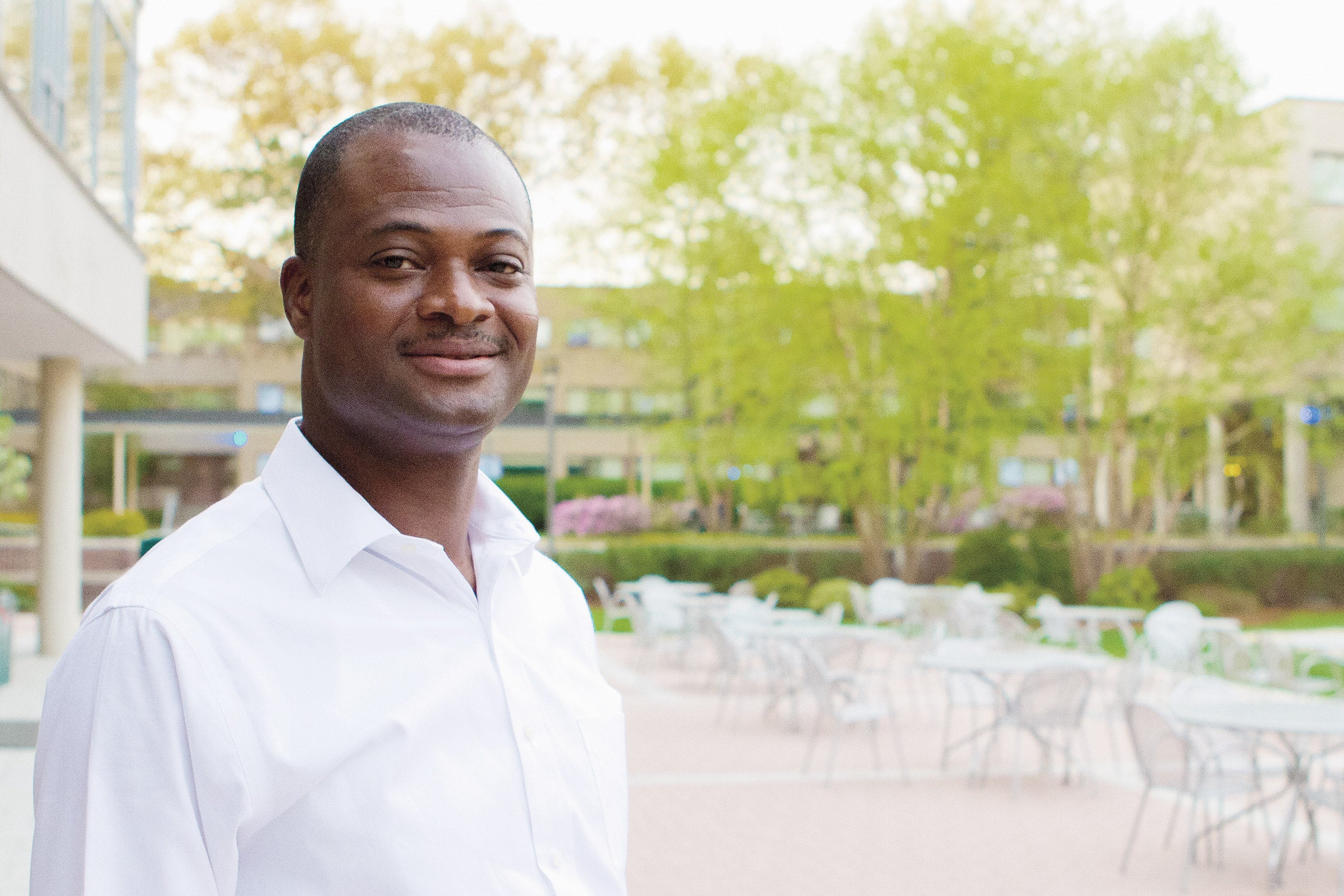During a recent interview, Raymond Atuguba S.J.D. ’04 gives his phone a quick glance. It’s a text confirming the president of Ghana’s launch of Atuguba’s latest policy recommendation: 64 new community-based health care centers and a commitment to building a total of 6,500 such compounds to serve rural populations.
That’s just one of the ways he’s helping his home country, drawing on lessons from his service on a U.N. High Level Task Force on the right to development and his work consulting for the World Bank and USAID. Harvard Law School has also been integral to his work, not only helping him as a teacher (he’s on the faculty of law at the University of Ghana), but also involved directly in his efforts to improve the country.
As a child, Atuguba was regularly confronted by the harsh realities of poverty. His father, a civil servant posted to rural areas, owned the only car for miles around. “Every emergency was brought to our door. If the car was not functioning, people died—on a daily basis—because they could not get to the hospital,” recalls Atuguba. “When I grew up, I said, ‘No, this has to change.’”
In 1997, Atuguba co-founded a legal aid clinic in Ghana, the Legal Resources Centre, to provide legal relief to poor communities. But he sought systemic, permanent change. “I wanted to reform the text of the law to make it more progressive and responsive to the needs of poor people,” he says. With that agenda, Atuguba arrived at HLS in 1999. Over the next several years, his graduate studies and work in the human rights and development fields took him back and forth between the U.S. and Ghana. Many of those trips were with HLS Professor Lucie White ’81 and students from her then newly created clinical class, The Ghana Project, which, in collaboration with the Legal Resources Centre and other organizations, offers students firsthand experience in social rights and global health issues
Among the group’s projects was fieldwork researching the “cash and carry” public health insurance system. Interviewing residents, including in the remotest areas of Ghana, they found widespread system failure—the country’s poorest citizens couldn’t pay the fees and were going without basic care.
The group’s reports helped shape the first national health insurance system in 2003 and a law mandating coverage in 2004—one of the very first attempts at universal health coverage in sub-Saharan Africa.
By 2006, fractures in the system were showing. Atuguba’s team at the Law and Development Associates, the new organization he had founded, gathered more evidence and suggested revisions, the majority of which were incorporated into the 2012 National Health Insurance Act.
In 2010, Atuguba applied the same evidence-based methodology as principal researcher on the commission evaluating the country’s 1992 constitution. His team traveled throughout Ghana asking, “How does this constitution work for you?”
They received 83,161 answers: text messages, emails, letters, an entire book. “We wanted everyone’s view,” he says. “It was an opportunity for everyone to say what they wanted about the government, about their lives,” he recalls. “It was an instrument for accountability.” In 2011, they submitted a 1,000-page report—including the thousands of responses—to the president.
A draft bill was sent to Parliament in 2014, only to be stalled by a lawsuit charging an illegal revision process. In 2015, Ghana’s Supreme Court ruled that the reforms could continue. Now, says Atuguba, the challenge is to rev up momentum again.
Atuguba is also developing policies to ensure that his country’s most vulnerable communities can withstand, and benefit from, the extraction of Ghana’s natural resources—oil, gas and gold. He’s enlisted the help of S.J.D. candidate Kwabena Oteng Acheampong LL.M. ’13 as well as White and her students.
Shaking his head about the process of reform, Atuguba laughs. “If you want to get it right, it takes time. It really takes time,” he says. “There is no point at which you can stop working for the type of world that you want to live in.”
